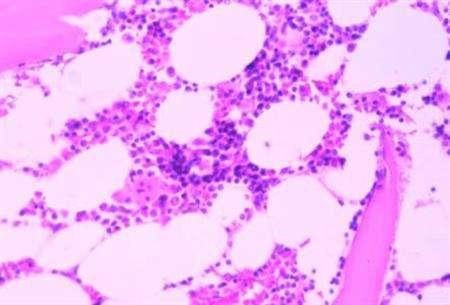TSRI researchers find a way to let leukaemia cells kill each other

A team of researchers at The Scripps Research Institute (TSRI) in the La Jolla claim to have discovered the antibodies that can turn leukaemia cells into leukaemia-killing cells. The ability of the leukaemia cells to kill each other could potentially pave the way for new cancer therapy.
The research, published recently in the Proceedings of the National Academy of Sciences, was based on the discovery of a rare human antibody that helps establish the new self-destructing role of the leukaemia cells. The researchers believe it to be a new approach to cancer and look forward to test the therapy in human patients soon.
The senior study investigator, Richard A. Lerner, has developed a number of techniques to screen huge libraries of antibodies to find the ones that could particularly bind to a specific target or activate them.
Recently, Lerner's lab tried to find an antibody that could activate the growth factor present on immature bone marrow cells that could produce specific blood cells type in people with immune cell or blood factor deficiency. During previous research, Lerner had already identified a set of antibodies that activate the marrow-cell receptors.
During the recent research, Lerner discovered that some of the identified antibodies activate the marrow-cell receptors to mature into different types of cells called neural cells. The discovery triggered the researchers to see if the same method could be used to convert cancerous marrow cells to non-cancerous leukaemia cells.
The research team studied the impact of 20 such receptor-activating antibodies against the acute myeloid leukaemia cells derived from human patients. They found that one of the antibodies had a significant impact on the leukaemia cells.
When applied to immature marrow-cell, the antibody turned it into a blood-platelet-producing cells called megakaryocytes. However, the researchers noted that when the same antibody was applied to acute myeloid leukaemia cells, it converted them into dendritic cells. The latter is a form of key support cells in the human immune system.
In addition, the team found that a longer exposure to the antibody turned the dendritic cells into natural killer (NK) cells. The NK cells act as a rapid-reaction forces in the human immune system and can act against both bacteria and viruses.
Further testing revealed that the NK cells were successful in wiping out nearly 15 percent of the surrounding leukaemia cells within a day. However, the NK cells were found to be against related cases of cancer. Unrelated breast cancer cells did not die off in large numbers in the presence of NK cells, reported the Times of San Diego.
Contact the writer at feedback@ibtimes.com.au, or let us know what you think below.





















